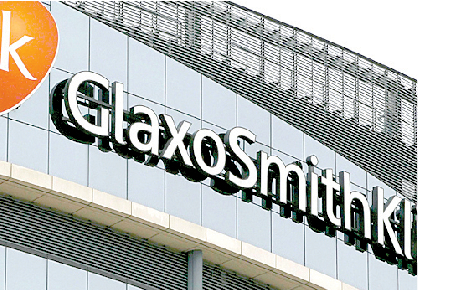End of an era as drug giant GSK exits Kenyan market
By Noel.Wandera, December 14, 2023GlaxoSmithKline (GSK), a British pharmaceutical multi-national, has closed its operations in Kenya, four months after exiting Nigeria in what appears to be global restructuring plan of its business model.
The company has operated a manufacturing facility in Kenya for nearly six decades and will now rely on distributors to supply its products to the regional markets. GSK has attributed its exit to low sales and a shift in focus to its more profitable prescription drugs and vaccines business.
The company has faced stiff competition from local manufacturers and cheaper generic drugs from India. The big pharma will, however, retain its production facility in Nairobi’s Industrial area under its stand-alone consumer healthcare affiliate Haleon.
Haleon was hived off GSK in July last year and deals in products including Sensodyne and Panadol. GSK will focus on the lucrative prescription drugs and vaccines business, which has brands like Augmentin, Zentel and Ventolin.
“The production facility in Kenya is a Haleon facility, and is not the subject of the update that GSK gave in Kenya this week,” GSK said in a statement.
Commercial operation
“We announced that for our GSK business, we would move to a direct distribution model. This means that instead of having a GSK commercial operation in the country we will supply our medicines and vaccines through a third party,” the company further clarified.
The exit of GSK, a major player in Kenya’s pharmaceutical market could potentially shake investor confidence.
Investors might start questioning the viability of the market and the ease of doing business in the country. Furthermore, the company’s exit will have significant economic ramifications, including job losses through its supply chain and a decrease in foreign direct investment.
Kenya’s pharmaceutical sector’s outlook might also be perceived as less attractive for investment due to increased competition from cheaper generics and locally manufactured medicines. Additionally, investors will be wary of policy uncertainties and complexities in foreign exchange, which were among the challenges cited by GSK as a cause of its exit.
Nigeria and Kenya are two of GSK’s largest markets in Africa.
GSK’s choice to reduce its operations in Kenya could also result in a drop in tax income. This comes at a time when the government is grappling with cash flow issues and requires additional funds to fulfill its tax commitments.
However, GSK still plans to continue supplying its products to these markets through a distributor-led model as a strategic adaptation to the changing business environment that allows the company to maintain its presence in Africa.
The drug manufacturer turned down a £50 billion (Sh9.6 trillion) bid from Unilever for the unit at the end of last year, arguing that the deal would have undervalued the company. The review of the Kenya operations comes nearly five years after the pharmaceutical giant announced it was cutting back operations in Africa.
It stopped marketing medicines to healthcare professionals in 29 sub-Saharan African markets but continued running local operations in Kenya and Nigeria while retaining representative offices in Cote d’Ivoire and Ghana.
Between July 2022 and June 2023, an estimated 2,030 businesses, all previously registered with the registrar of companies, ceased operations in Kenya.
Policy uncertainties
Furthermore, from August 2023 to 2024, an additional 313 establishments have since closed shop in the country citing foreign exchange difficulties, high operational costs and policy uncertainties prevalent in Kenya. Notable names include the Hilton Hotel, Kune Food and Notify Logistics.
GSK’s departure is like a thrilling novel with a bittersweet ending. With its wide range of healthcare products, the drug manufacturer has been more than just a pharmaceutical company in Kenya.
The pharmaceutical giant whose products have been trusted by millions, has been a part of Kenyan lives for years, a silent companion in the journey of health and wellness for many Kenyans.
